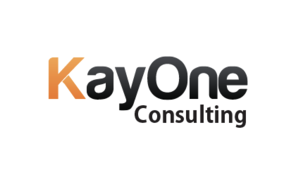CFO Services for Small Business: What You Need to Know
Small firms may have limited resources, strict budgets, and a variety of financial management difficulties. Chief Financial Officer (CFO) services might be quite helpful in this situation. This article explores the world of CFO services for small businesses, explaining what they are, their importance, and how to get the most out of them.
Understanding the Role of a CFO
A Chief Financial Officer (CFO) is a prominent executive who is in charge of supervising a company’s accounting system. They are frequently connected with larger organizations. However, to properly manage their finances, small and mid-sized enterprises, startups, and startups increasingly need CFO services.
A CFO’s duties are extensive and include developing strategies, managing risks, doing financial planning and analysis, and developing financial plans. They plan and implement financial plans and control cash flow to guarantee liquidity.
In order to safeguard the company’s financial stability, CFOs also detect and reduce financial threats by putting risk management techniques into practice. They compile financial projects for regulatory compliance and decision-making.
Hiring a virtual CFO helps assess investment prospects as well, looking for ways to save costs and maximize spending without sacrificing quality. They assist in raising capital by means of loans and equity financing, and they work together with tax experts to refine the business’s tax plan, guaranteeing adherence to tax regulations and minimizing tax obligations.
The Importance of CFO Services for Small Business
Small firms can gain a lot from Virtual CFO services, even if the traditional CFO position is typically only filled by large enterprises. Small firms must use a CFO or an outsourced CFO service for the following reasons:
Financial Expertise
Experienced CFOs are extremely knowledgeable and experienced in finance. They can offer insightful advice and important insights to support your small business in making wise financial decisions.
Strategic Planning
CFOs may assist small businesses in creating and carrying out a clear financial plan. This strategic planning and execution is critical for long-term success and growth.
Risk Mitigation
Small firms, like larger organizations, experience financial dangers. To make sure that your company maintains its financial stability, CFOs can recognize and reduce these risks.
Cost Savings
CFOs are financial professionals. They can assist your small firm in finding chances for cost savings and enhancing its overall financial performance.
Access to Funding
Financing is often necessary for small businesses to grow or overcome financial obstacles. Early stage CFOs can help manage the company’s finances and ties with lenders or investors and help secure finance.
Financial Reporting
Timely and precise financial reporting is essential for compliance and decision-making. An experienced CFO makes sure your small company complies with these regulations.
Cash Flow Management
Small firms frequently struggle with cash flow management. CFOs are able to create plans to deal with liquidity problems and sustain a sustainable cash flow.
Tax Planning
CFOs collaborate with tax experts to maximize your small business’s tax plan, lowering your tax obligations while maintaining legal compliance.
Better Decision-Making
CFOs offer the financial information and analysis required to make wise decisions. They assist you in evaluating the financial effects of several options and deciding on the best course of action.
When to Consider CFO Services for Your Small Business?
As a small business owner, you may wonder when it is appropriate to employ CFO services. The following situations can greatly benefit from hiring a CFO or CFO consulting services:
Rapid Growth
Your small business’s managerial skills and financial resources may be put under stress if it is growing quickly. A CFO’s role is to assist you in managing this growth and ensuring its sustainability.
Financial Challenges
One common reason to think about hiring a CFO is to address financial challenges, including reducing profitability, growing debt, or cash flow issues. You can overcome these obstacles and get your company back on track with the assistance of a CFO.
Strategic Expansion
A CFO can assist you in determining whether it is financially feasible for your company to grow into new areas, introduce new goods, or undertake sizable investments. They may also help you develop a successful expansion strategy.
Compliance and Reporting
Your company will need to comply with increasingly complicated financial reporting regulations as it expands. A (chief financial officer)CFO makes sure you fulfill these responsibilities and stay out of trouble financially or legally.
Access to Capital
A CFO can assist you in securing funds and managing the connection with lenders or investors if your small business needs extra capital for expansion or to address financial obstacles.
Exit Strategy
A CFO may help with the financial components of the exit strategy, guaranteeing a smooth transfer if you’re preparing to sell your small business or hand it over to a new owner.
Long-Term Success
A CFO can assist you in developing a long-term financial plan that will guarantee continued prosperity, even if your small firm is already solid.
In-House CFO vs. Outsourced CFO Services
Hiring an internal CFO or using external CFO services are the two primary ways small organizations can obtainvirtual CFO services. Each offers benefits and concerns to keep in mind.
In-House CFO
Adding a CFO to your team on a full-time or part-time basis is the process of hiring an internal CFO. The advantage of having a committed CFO who is closely involved in your company is offered by this choice. Here are some things to think about:
Pros of In-House CFO:
- Dedication: An internal CFO understands the intricate details of your company and is totally passionate about it.
- Instant Availability: Your CFO is always available to you directly when you require their assistance.
- Long-Term Alignment: An internal CFO can serve as an enduring strategic ally profoundly committed to the prosperity of your enterprise.
Cons of In-House CFO:
- Cost: With pay, benefits, and overhead, hiring a full-time CFO can be costly for small firms.
- Limited Expertise: Your internal CFO could only have some knowledge and skills your company needs.
- Recruiting and Onboarding: It might be difficult and time-consuming to find and onboard the ideal CFO.
Outsourced CFO Services
On the contrary, outsourcing CFO services is hiring a company or person on a project or part-time basis to provide CFO-level knowledge. This choice gives you access to a broad range of financial knowledge and freedom. Consider the following:
Pros of Outsourced CFO Services:
- Cost-Effective: Only paying for the services you require; outsourcing CFO services is frequently less expensive than retaining a full-time CFO.
- Diverse Expertise: Utilizing an outsourced CFO service with a staff of experts will provide you access to a wider breadth of knowledge.
- Flexibility: Your business needs can change, so you can scale up or down your CFO services.
- Quick Access: Outsourced CFOs are easily reachable and offer instantaneous expertise.
Cons of Outsourced CFO Services:
- Less Integration: An external CFO’s degree of integration with your company can be lower than that of an internal CFO.
- Project-Based: Certain outsourced CFO services operate on a project-by-project basis, which may not give the long-term coordination that an internal CFO can.
Your unique business needs, financial situation, and stage of growth will all influence your decision between in-house and external CFO services. Outsourced CFO services provide the perfect mix of cost-effectiveness and experience, according to many small organizations.
Selecting the Right CFO or CFO Service
Selecting the ideal CFO or CFO service is an important choice for your small company. The following actions will assist you in making an informed decision:
Determine Your Needs
First, evaluate the unique financial requirements and obstacles that your company faces. Think about whether you need project-based (chief financial officer) CFO services or a full-time or part-time CFO. Finding the perfect fit begins with knowing what you need.
Create Your Budget
Calculate the portion of your budget that you can dedicate to CFO services. This will assist you in determining whether to outsource the function or hire an internal CFO.
Interview Candidates or Firms
Interview them to find out how well they understand your company and how well they can handle the unique financial difficulties you face. Inquire about their problem-solving and financial strategy methods.
Describe Duties and Roles in Detail
Provide a clear explanation of the objectives and duties of the CFO or CFO service. By doing this, it is ensured that everyone involved understands the terms of the engagement.
Negotiate Terms and Agreements
Talk about the conditions, such as the cost, the length of the contract, and any performance benchmarks you wish to set. Make sure the agreement satisfies the requirements of your company.
The Future of CFO Services for Small Businesses
Future predictions indicate that the importance of CFOs and CFO services for small businesseswill only increase. A reliable financial expert will be even more important to a firm as it navigates ever-more complex financial requirements.
Technological developments like data analytics and artificial intelligence will also be crucial in helping CFOs become more capable. Small firms can profit even more from their increased ability to evaluate financial data and make data-driven decisions.
Furthermore, in order to support small firms in adapting to and prospering in a dynamic environment, CFOs will also need to stay current on shifting tax laws, economic trends, and financial regulations as the business landscape changes.
The Bottom Line
CFO services are a valuable resource for small firms looking to develop, achieve better financial management, and guarantee long-term success. The most important thing is to determine the best fit for your goals and budget, whether that means hiring an internal CFO or using external CFO services. Your small business may successfully navigate the financial maze and make well-informed decisions that boost growth with the appropriate financial leadership.




